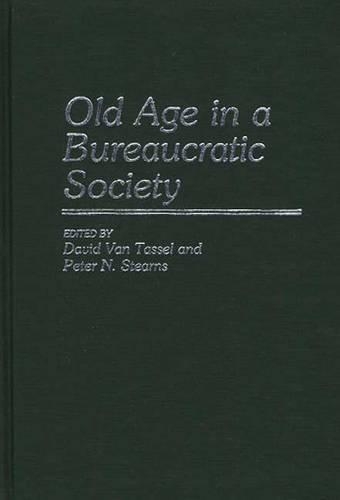
Old Age in a Bureaucratic Society: The Elderly, the Experts, and the State in American Society
(Hardback)
Publishing Details
Old Age in a Bureaucratic Society: The Elderly, the Experts, and the State in American Society
Bloomsbury Publishing PLC
Praeger Publishers Inc
21st February 1986
United States
Classifications
Tertiary Education
Non Fiction
Care of the elderly
305.260973
Physical Properties
Hardback
279
Reviews
In this collection of papers from a conference held at Case Western Reserve University in 1983, social historians and sociologists debate the role of and societal resonse to the aged in America from the Colonial period to the present. The authors challenge earlier theories and research that have been the bases for current attitudes and social policies aimed at this population. Of special interest was a critique of Modernization Theory and its influence on social thought about the aging that eventually led to public health care and income security programs on their behalf. Contributors also analyzed demographic changes of the 20th century and public response to them, and whether these responses (such as New Deal programs) will continue to be relevant in the 21st-century. Disagreement among contributors about future alternatives to health and economic security programs for the aging echo some 19th-century political theses regarding capitalism and democracy (i.e., class versus citizenship). Each chapter has a well-documented and current bibliography. For upper-division undergraduate and graduate students with a special interest in gerontology, history, sociology, and social welfare.-Choice
"In this collection of papers from a conference held at Case Western Reserve University in 1983, social historians and sociologists debate the role of and societal resonse to the aged in America from the Colonial period to the present. The authors challenge earlier theories and research that have been the bases for current attitudes and social policies aimed at this population. Of special interest was a critique of Modernization Theory and its influence on social thought about the aging that eventually led to public health care and income security programs on their behalf. Contributors also analyzed demographic changes of the 20th century and public response to them, and whether these responses (such as New Deal programs) will continue to be relevant in the 21st-century. Disagreement among contributors about future alternatives to health and economic security programs for the aging echo some 19th-century political theses regarding capitalism and democracy (i.e., class versus citizenship). Each chapter has a well-documented and current bibliography. For upper-division undergraduate and graduate students with a special interest in gerontology, history, sociology, and social welfare."-Choice
Author Bio
earns /f Peter /i N. /r ed. Tassel /f David /r ed.
